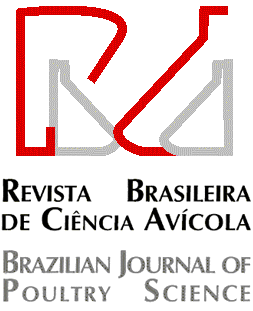ABSTRACT
The present study aimed to evaluate ducks on performance, carcass traits and economic availability, fed on different phases of nutritional plans and in different housing densities. Two hundred and forty Muscovy ducks of creole lineage were used, distributed in boxes with water and food ad libitum. The experimental design was completely randomized in a factorial arrangement of 3x2 with three nutritional plans (3, 4 and 5 phases) and two housing densities (2 and 3 birds/m2) with four replicates. The ducks had weekly performance evaluations, and after 90 days, four birds in each treatment were slaughtered for evaluation of carcass traits. Differences (p<0.05) were observed on performance, carcass traits and economic analysis. The nutritional plans with 3 phases showed better results for feed intake and weight gain, as well as provided lower total cost production and higher operating profit. Ducks in higher densities showed smaller feed intake, weight gain, higher pro-ventricle weight and better results for total meet production, crude income and operating profit. In summary, nutritional plans with reduced phases (3 phases) and extensions of energy-protein relationships showed better results for ducks on performance and carcass traits in densities of 3 birds/m². More studies are necessary to determine other nutritional requirements for ducks in housing for a better nutritional and management control.
Keywords:
Carcass yield; edible visceras; feed cost; muscovy ducks; performance
